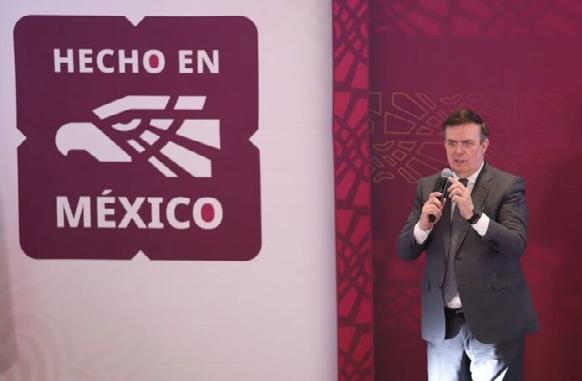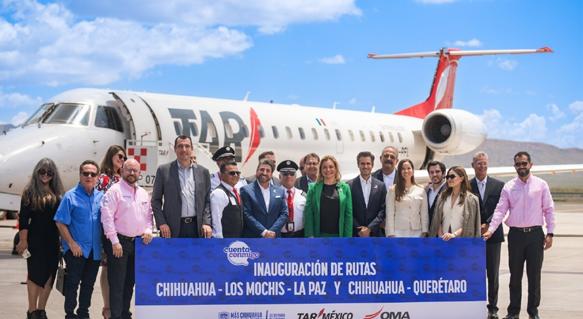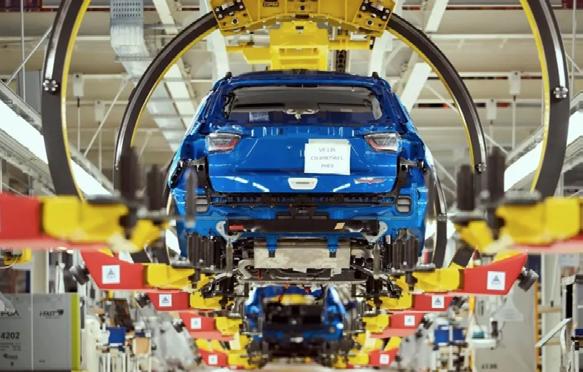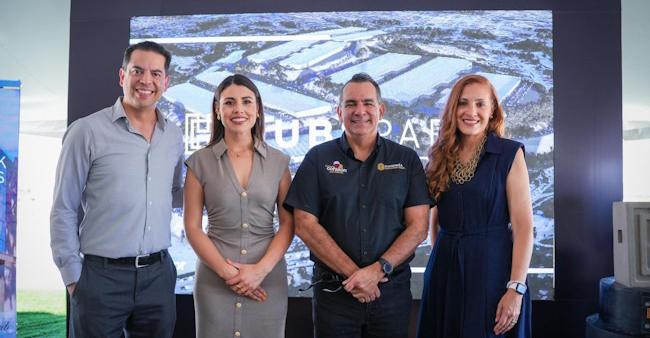GENERAL SITUATION IN MEXICO
Weekly Review I July 16, 2025





Weekly Review I July 16, 2025








- MEXICO

• On July 14, 2025, the US imposed a 17% tariff on Mexican fresh tomatoes after unilaterally withdrawing from the 2019 Tomato Suspension Agreement, alleging dumping practices by Mexican exporters.
• The move reignites a long-standing trade conflict. Mexico is the top foreign supplier of tomatoes to the US, accounting for 70% of national consumption, with $3.1 billion USD in annual exports affected.
• Just two days prior, on July 12, President Trump announced a broader threat: a 30% general tariff on all Mexican imports starting August 1, citing the Mexican government’s failure to control fentanyl trafficking and irregular migration.
• Combined, these measures threaten the stability of over $850 billion USD in bilateral trade and may undermine key pillars of the USMCA.

AGRICULTURE UNDER PRESSURE:
The tomato tariff has already caused supply chain disruptions in Sinaloa and Baja California. Industry groups forecast price increases of 6–10% in the US retail market and reduced profitability for Mexican growers.
POTENTIAL RIPPLE EFFECTS:
The tariff threat extends beyond tomatoes — avocados, peppers, berries, cucumbers, beer, and tequila are vulnerable due to their visibility and value in bilateral trade.
EXPORTERS BRACE FOR UNCERTAINTY:
Automotive suppliers, electronics assemblers, and food processors operating in Mexico face higher landed costs, possible shipment rerouting, and contract renegotiations with US buyers.
DIPLOMATIC ESCALATION:
The Mexican government condemned both actions and requested emergency consultations under the USMCA framework. Officials have warned of potential countermeasures if the August tariffs are enacted.
US–MEXICO TRUST IN JEOPARDY:
The threat of a sweeping 30% tariff — outside of USMCA protocols — could set a damaging precedent and undermine investor confidence in regional integration.

SECTORS AT HIGHEST RISK:
• Fresh produce & agribusiness: tomatoes, avocados, berries
• Manufacturing: auto parts, electronics, home appliances
• Metals & construction materials
• Beverage exports: beer, tequila, soft drinks
AGRICULTURAL STATES (SINALOA, MICHOACÁN, GUANAJUATO, JALISCO):
• Immediate impact from the July tariff; possible labor displacement and price volatility
• May require temporary subsidy or logistic support
CUSTOMS AND LOGISTICS PROVIDERS:
• Surge in administrative pressure and possible congestion as companies front-load shipments before August
SOURCE: EL PAIS
Outlook & action items
30% TARIFF REMAINS A CREDIBLE THREAT:
• Unless a diplomatic breakthrough occurs, the August measure could take effect as announced, with no exemptions by sector currently planned.
NEGOTIATION WINDOW CLOSING:
• Talks between the two governments are ongoing, but progress remains uncertain amid growing political pressure from both sides.
SHORT-TERM ACTIONS RECOMMENDED:
• Monitor developments in Washington and Mexico City for tariff updates
• Assess cost exposure across import categories and identify critical risk points
• Engage supply chain partners to review logistics scenarios and customs timing
• Consider origin diversification or temporary alternative markets
PREPARE FOR POLICY VOLATILITY THROUGH 2025:
• As the US election cycle intensifies, trade-related decisions may become increasingly unilateral and unpredictable. Companies should build in resilience buffers and expect policy-driven market distortions.
ECONOMY
• INITIATIVE TO AMEND THE LAW TO PROMOTE SUSTAINED INCREASES IN PRODUCTIVITY AND COMPETITIVENESS OF THE NATIONAL ECONOMY
Presented by: Deputy Noemi Berenice Luna Ayala (PAN)
Objective: Adds specific goals to promote coordinated strategies and financial incentives that facilitate the formal inclusion of informal economic entities into the tax and labor systems, reduce administrative burdens, and enhance productivity.
Status: 2025-07-09 – Published in the Parliamentary Gazette
TRANSPORTATION
• BILL TO AMEND ARTICLES 35, 63 BIS, AND 68 OF THE FEDERAL HIGHWAYS, BRIDGES, AND MOTOR TRANSPORTATION LAW
Presented by: Deputy Maiella Martha Gabriela Gómez Maldonado (MORENA)
Objective: Prohibits sharp-edged wheel or body parts on cargo vehicles due to risks to third parties. Violations will result in loss of transport approval and be treated as intentional acts. Concessionaires are liable, and insurers must cover full damages.
Status: 2025-07-03 – Published

• INITIATIVE WITH DRAFT DECREE TO AMEND ARTICLE 377 OF THE FEDERAL LABOR LAW
Presented by: Deputy Francisco Adrián Castillo Morales (MORENA)
Objective: Requires unions to promote training in pre-retirement culture through psychological thanatology, including evaluation, diagnosis, and preventive treatment of mental health disorders, to prepare workers for a dignified retirement.
Status: 2025-07-09 – Published in the Parliamentary Gazette
• INITIATIVE WITH DRAFT DECREE TO ADD PROVISIONS THE GENERAL LAW OF TRANSPARENCY AND ACCESS TO PUBLIC INFORMATION
Presented by: Deputy Laura Irais Ballesteros Mancilla
Objective: Require creation of documents and digital security protocols for all information transfers on the National Transparency Platform and the Secretariat of Anti-Corruption and Good Governance. Status: 2025-07-09 – Published in the Parliamentary Gazette


On July 15, 2025, at the Hotel Quartz in Tijuana, the Baja California Investment Promotion Committee was established to enhance investments in the state and present certificates for the “Made in Mexico” program. Governor Marina del Pilar emphasized that Baja California exemplifies national economic strengthening due to local talent, private initiative, and a skilled industry. She highlighted that the committee is a strategic initiative that integrates public and private sectors to promote sustainable development and job creation. Congressman Alfonso Candelaria López noted that the committee will enhance proposal generation, problem-solving, and investment transparency. Additionally, Maria Barbara Botello, promoter of the Made in Mexico initiative, stated their goal is to encourage the consumption of Mexican products, with the program serving as a certification from the Ministry of Economy for top-quality goods, services, and businesses.
SOURCE: INDUSTRIAL NEWS BC



Chihuahua International Airport, operated by Grupo Aeroportuario del Centro Norte (OMA), has opened two new routes, Chihuahua-Querétaro and Chihuahua-Los Mochis-La Paz, bringing its total routes to 14. The airport, which currently has six commercial airlines, is a gateway between the north of the country, the Bajío region, and the Mexican Pacific. The new routes attract investment, promote employment, and strengthen the state’s competitiveness. Between 2020 and 2025, the airport invested over US$54 million in infrastructure modernization, including construction and remodeling. The airport plans an additional investment of 660 million pesos for 2026-2030 to increase operational capacity and service standards.
SOURCE: MEXICO NOW


NUEVO LEON
On July 11, Nuevo León’s Ministry of Environment and Ministry of Economy formalized the “Climate Alliances” project through agreements with three industrial clusters, aiming to reduce energy consumption and greenhouse gas emissions by fostering public-private collaboration. Supported by Danish energy expertise, the initiative builds on Denmark’s successful emissions reduction model and involves data collection, roadmaps, and workshops with companies to identify barriers and implement energy efficiency measures. This pioneering effort positions Nuevo León as a global leader in industrial emission reduction efforts.
SOURCE: GOVERNMENT OF NUEVO LEON


Guanajuato is transforming into a national hub in electromobility, thanks to a robust ecosystem that integrates academic institutions, government support, and automotive industry companies. The region has successfully combined innovation, applied education, and sustainability to develop technical talent for the new automotive industry. Institutions like ITESI and UPG are promoting practical programs in electrical engineering, prototype design, and energy efficiency. The state’s Secretariat of Education, the Secretariat of Sustainable Economic Development, and the Guanajuato Automotive Cluster have supported these initiatives through resources, infrastructure, competitions, and industry linkage programs. Over 58 state companies have actively joined electromobility projects, strengthening university-business interaction and driving applied technologies. Guanajuato is positioning itself as a breeding ground for talent specialized in electromobility, offering a platform for future engineers and entrepreneurs to lead electric mobility projects, offer smart charging solutions, and develop technologies for a cleaner and more competitive automotive industry.
SOURCE: MEXICO INDUSTRY

The Querétaro Automotive Summit 2025 has started with over 200 buyers participating to focus on regional integration, technology, and sustainability in the automotive industry. The event aims to strengthen the supply chain and address industry challenges over three days, featuring discussions on innovation and collaboration among companies, academia, and authorities. Key officials highlighted the importance of the automotive sector in the region and the need for ongoing integration and technological advancement to support economic growth and sustainability in Mexico. The agenda includes talks on electromobility and networking sessions.
SOURCE: CLUSTER INDUSTRIAL



Mexico City’s government announced a 1.3 billion pesos investment to rehabilitate the iconic Tlatelolco Housing Unit under the “Urban Regeneration for Transformation Now (RUTA) Tlatelolco my Love” program. The plan includes structural reinforcement for 27 buildings with varying levels of damage and upgrades to water systems, lighting, security, and public spaces. Key interventions will target six severely damaged buildings, while 2,400 lights, 22,000 m² of sidewalks, and 13,000 m² of pavement will be restored. The project also involves rebuilding the ISSSTE Gonzalo Castañeda Hospital and Tlatelolco Cinema. Four surveillance modules will be restored, increasing video surveillance by 25%. The initiative aims to improve residents’ safety and quality of life, with coordination across political parties.
SOURCE: RECORD


As part of the Comprehensive Plan for the Rescue of Eastern State of Mexico (Edomex), the federal and state governments will invest 4.2 billion pesos in housing and public infrastructure. This initiative will benefit 10 municipalities, including Chalco, Ecatepec, and Nezahualcóyotl, home to over 10 million residents. The plan includes 97,000 grants of 40,000 pesos each for home improvements, totaling 3.8 billion pesos. It also allocates 51.2 million pesos to regularize land tenure, issuing 32,000 deeds. Additionally, 552 property titles will be delivered in the coming days. The initiative involves collaboration with Infonavit and Fovissste to ease mortgage burdens and includes updates to urban development plans in several municipalities. Public works will modernize basic infrastructure— such as water and drainage systems—and rehabilitate parks and sports facilities. This investment aims to reduce housing insecurity, improve living conditions, and enhance urban development, contributing to longterm regional stability and social inclusion in eastern Edomex.
SOURCE: CENTRO URBANO

Meor launched Hubspark Tech Campus in Tijuana, a Class A technology park. It will cover 650,000 m2 in five stages, with an initial 120,000 m2 phase costing $150 million. The project aims to attract global companies and create 6,000 direct and 10,000 indirect jobs.
Automotive company Inteva Products has announced an $8 million dollars investment to expand its operations in Matamoros, Tamaulipas. The number of new jobs expected from this project has not yet been disclosed.
ABB has inaugurated the expansion of its facility at the WTC Logistics Park in San Luis Potosí, following an investment of $12.1 million dollars. The project is expected to generate 223 new jobs.
Swiss company Franke Group, specialized in kitchen and residential solutions, has inaugurated a new plant in San Luis Potosí as part of its global expansion strategy. The project involved an investment of $82 million dollars and is expected to create over 500 jobs.
SOURCES: MEXICO NOW, MEXICO INDUSTRY, CLUSTER INDUSTRIAL
As global supply chains evolve, the Mexico vs. China manufacturing debate is heating up. This blog post breaks down what matters most to manufacturers: labor costs, logistics, trade agreements, and geopolitical risks. With growing pressure to regionalize and nearshore, Mexico is becoming a strategic favorite for North American supply chains.
If you’re weighing the pros and cons of where to expand or relocate your production, don’t miss this strategic comparison.
HIGHLIGHTS FROM THE POST:
• Mexico’s USMCA benefits vs. China’s cost efficiency
• Time-to-market and logistics advantages near the U.S.
• How to align your manufacturing location with long-term goals
• Why many companies are using Mexico to complement—not replace—China
UNLOCK COST SAVINGS THROUGH RULES OF ORIGIN (ROO)
Looking to cut costs on your U.S.-bound exports? Understanding Rules of Origin (ROO) under USMCA can help you save big on tariffs—if you know how to navigate them. This guide breaks down ROO in simple terms and shows how to structure your supply chain to qualify for duty-free treatment.
If you’re manufacturing in Mexico (or considering it), this is a must-read to avoid common pitfalls and unlock hidden savings.

• How ROO compliance directly impacts your bottom line
• Tips for building ROO into sourcing and production decisions
• Common mistakes that lead to disqualification from trade benefits
• Why documentation and cross-team coordination matter more than ever
VISIT OUR WEBSITE TO EXPLORE OUR FEATURED BLOG POSTS, EBOOKS, AND CASE STUDIES PRODENSA.COM/INSIGHTS